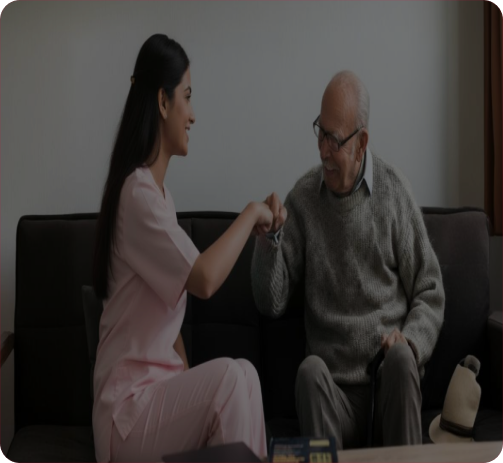Grief is never easy but it can be more difficult for our elders due to their vulnerability because of various factors. Losing a close companion, a lifelong partner, or even a dear friend leaves a void that words often can’t fill, especially as we age. For our elders, grief can also come from a difficult diagnosis or from life changes that remind them of the passage of time. These feelings may seem overwhelming, but your love and support are the most meaningful comfort you can offer.
Grief is as unique as the person experiencing it. There’s no roadmap to follow, especially for the elderly, who may have layers of past experiences, health challenges, and a lifetime of memories that shape their grieving process. Sometimes, it’s hard for them to put their feelings into words, so your role as a quiet, compassionate listener becomes invaluable. Simply by being there, you show them that their emotions are natural, and they don’t have to face these feelings alone.
Why Grieving Can Be Harder on the Mental Well-Being of Our Elders
For older adults, grief can feel particularly intense, with physical and emotional effects often intertwined. Some of the unique challenges include:
Health Concerns: Grieving can strain an elder’s health, potentially raising blood pressure, causing heart issues, or weakening the immune system. Being there to help them manage health appointments or encouraging gentle activities can make a difference.
Changes in Appetite: It’s common for grief to take away the joy of food. If you notice your loved one skipping meals, gently encourage them with familiar, comforting foods, and sit with them to ease the loneliness mealtimes can bring.
Mental Fog and Forgetfulness: Grief can bring moments of confusion or forgetfulness, especially in elders. Offering reminders or helping them with small tasks can help them stay grounded during these times.
Life Changes: The loss of a partner often brings big changes—shifts in their daily routines, finances, or even living arrangements. These transitions add layers to their grief, and helping them adjust can ease some of this stress.
Isolation: As social circles shrink with age, the loss of a close friend or partner can feel incredibly isolating. Staying connected and encouraging visits or calls with others can help bridge this gap.
Recognizing Physical Signs of Grief
Grief is not only an emotional journey; it can also manifest in physical symptoms. You might notice:
Sleep Troubles: They may find it difficult to sleep. Gentle reassurance and suggested restful activities can make nights less lonely.
Fatigue: Grieving takes energy, and even simple things may feel exhausting. Offer support for daily tasks or errands to lighten their load.
Anxiety and Restlessness: Loss can bring fear and unease. Spending calm, quiet moments together can ease some of this distress.
Embracing the Emotional Side of Grief
Emotions ebb and flow, and for the elderly, grief can bring a mix of fear, sadness, anger, guilt, and profound loneliness. It’s okay if your loved one needs time to open up, especially if they’re used to being independent. A patient heart and a listening ear are powerful gifts you can give.
Encourage Rest: Grief is exhausting. Remind them that rest is essential, and if sleep is difficult, just having a few moments of peace can be healing.
Be Present: Simply being there, even if it’s just sitting together quietly or watching a favorite show, can be incredibly soothing. Memories of their loved ones are often on their minds, so sharing or listening to these memories can bring them comfort.
Assist with Meals and Self-care: Grieving may make everyday tasks feel overwhelming. Offering a helping hand with things like meal prep, grocery shopping, or even managing medications can make a world of difference.
Helping Them Stay Socially Connected
When grieving, it’s natural to want solitude, but gentle encouragement to stay connected can be healing. Regular family visits, phone calls, or connecting with friends through community groups or faith organizations can remind them they’re not alone. Knowing others understand can lessen their feelings of isolation and bring back a sense of belonging.
Finding Peace of Mind for Both of You
Knowing your loved one has a support system can give both of you peace and be open in exploring options such as elder daycares, assisted living facilities or so on. A personal alarm or a gentle monitoring system can be a way to ensure they have help when they need it, bringing comfort during difficult times. Grief is a journey without a set timeline, and your support is a gift that no one else can offer in quite the same way. As you walk alongside them, let your kindness and patience remind them they are deeply cared for and that, no matter how heavy the heart may feel, they are never alone. A gentle word, a quiet meal shared, or a simple hand to hold can be a beacon of love as they find their way through this chapter.













